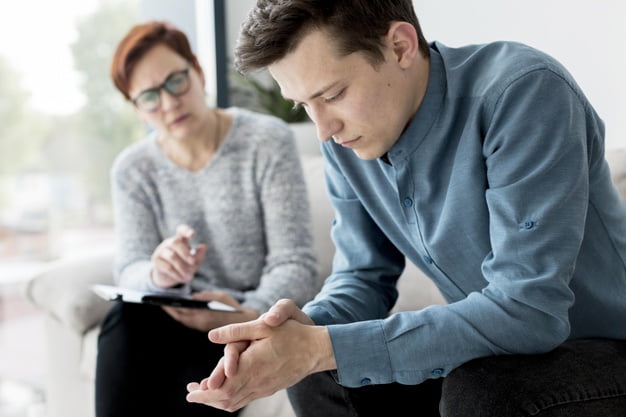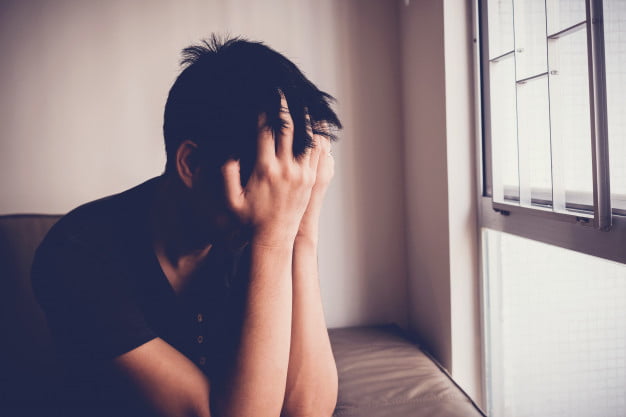
In this difficult year, many of us are struggling with unprecedented amounts of anxiety.
The triggers seem to be endless:
- Am I still going to have my job next month?
- How do I find time to help my kids with their remote learning?
- Am I going to get sick? Is a loved one of mine going to get sick?
- Am I going to lose friendships after not seeing them in person for a year?
All of us have a lot on our plates. While some of us may have already had self-care routines in place (yoga, mediation, journaling), many of us are flailing — unsure how to keep ourselves going.
If you’ve noticed a loved one is struggling, read on to find ways you can help them (while also helping yourself.)
What Is Anxiety?
A good definition of anxiety is that it’s the inability to shake off a negative cognition. Many people struggle with repetitive thoughts that they can’t get rid of or release.
What Are The Signs Of Anxiety?
Having shortness of breath is often one of the tell-tale signs of anxiety. Someone could also have a shaking leg, flickering eyes, fast-talking, or sweating. Others still go into a freeze reaction, and can’t do much at all.
When Should You Help Someone With Anxiety?
Most anxiety requires attention and care — not trying to “fix” the anxiety.
And if we’re honest, most of us could use some more attention and care. So if you see someone exhibiting one of the above traits, offer some caring reassurance.
What Are Ways You Can Help Someone With Anxiety?
Remember to try not to fix, or stop, their anxiety. You can be there to help the person actually acknowledge their anxiety. Because at the end of the day, anxiety needs to be seen and felt like an experience before it can truly begin to dissipate.
A specific way to help is to offer to get some movement together. Maybe go for a walk around the block or walk down to a coffee shop. Movement brings yourself back to the here and now, instead of imagining the anxious scenario over and over.
Another option is to ask them to sit quietly with you and think of a peaceful environment in their mind’s eye. Think of a real place they’ve been to, where they felt totally calm. This could be a beach, a forest, a family home — anywhere. Even if you only sit for a few minutes, imagining that place should help bring your friend to a calmer place.
*If you notice your loved one is experiencing severe anxiety, or their anxiety is holding them back in their daily lives, then it may be time to seek outside help, such as a therapist or holistic treatment center.
What About Pandemic-Related Anxiety?
A new class of anxiety has emerged in the last year — pandemic anxiety.
This newfound anxiety could show up in many different ways. Maybe they’re anxious about how to interact with others after isolating for so long. Maybe they’re worried about going to the doctor to get their heart checked out because they don’t want to risk getting infected at the office. Or maybe they’re nervous about everything they’re missing from not being able to go out.
People can have different combinations of these depending on the day. One of the best ways to help them through this anxiety is sticking to facts to reassure them.
“I don’t know how to talk with anyone anymore — I’m so awkward.”
“Everyone is! Everybody is in the same situation of not talking to many people for months. It makes sense it’s going to take some getting used to again.”
“I don’t want to go to the doctor’s office because I don’t want to catch covid-19 from someone there.”
“Everyone will have a mask on, and the doctor’s office is more sterilized than almost any other place you go. And if there is something wrong with your heart, you don’t want to put that off.”
“I’ve lost a whole year of my life!”
“Let’s focus on what you didn’t lose. You still have your health, your family, and your job. You also learned how to bake sourdough and knit! While it’s been a really tough year, let’s be grateful for what we have.”
Reassurance is often the best solution for anxiety. Feeling seen and heard allows your loved one to feel acknowledged. This recognition alone will often help anxiety dissipate, and it will also help the person feel more connected to you — which is what we need more of these days.





























